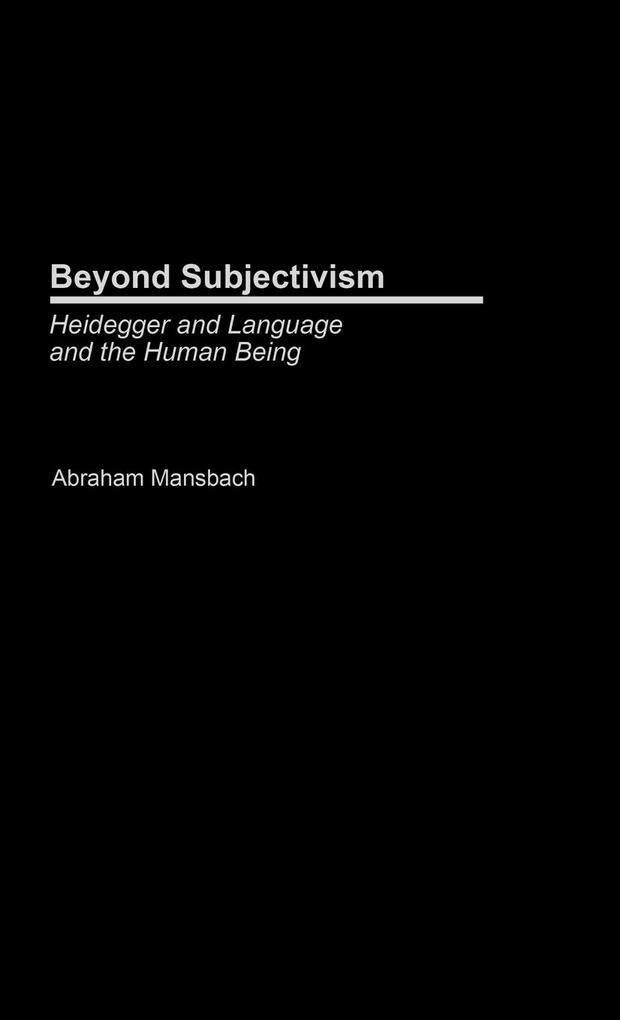
Zustellung: Fr, 04.07. - Di, 08.07.
Versand in 1-2 Wochen
VersandkostenfreiBestellen & in Filiale abholen:
This in-depth analysis of Heidegger's major works finds a fundamental thematic unity in the philosopher's effort to overcome the subjectivism of modern philosophy and to account for the ontological hierarchy that it alone constitutes a foundation for everything else. The author sees this challenge to the Cartesian tradition as the key to understanding Heidegger's views on human beings and language, as well as their influence in the issues of identity and representation in contemporary philosophy.
Inhaltsverzeichnis
Preface
Introduction
The Problem of Subjectivism
The Self: Dispersion and Constancy
Decentering the Subject: Works of Art as Heroes
Practice, Language, and Poetry
Language: The Transcendental Path
Language as a Web
The Human Being as Speaker and as Mortal
Being Human in the Age of Technology
Conclusion
Bibliography
Index
Introduction
The Problem of Subjectivism
The Self: Dispersion and Constancy
Decentering the Subject: Works of Art as Heroes
Practice, Language, and Poetry
Language: The Transcendental Path
Language as a Web
The Human Being as Speaker and as Mortal
Being Human in the Age of Technology
Conclusion
Bibliography
Index
Produktdetails
Erscheinungsdatum
30. Juli 2002
Sprache
englisch
Seitenanzahl
174
Autor/Autorin
Abraham Mansbach
Verlag/Hersteller
Produktart
gebunden
Gewicht
358 g
Größe (L/B/H)
222/145/13 mm
ISBN
9780313311536
Entdecken Sie mehr
Bewertungen
0 Bewertungen
Es wurden noch keine Bewertungen abgegeben. Schreiben Sie die erste Bewertung zu "Beyond Subjectivism" und helfen Sie damit anderen bei der Kaufentscheidung.










